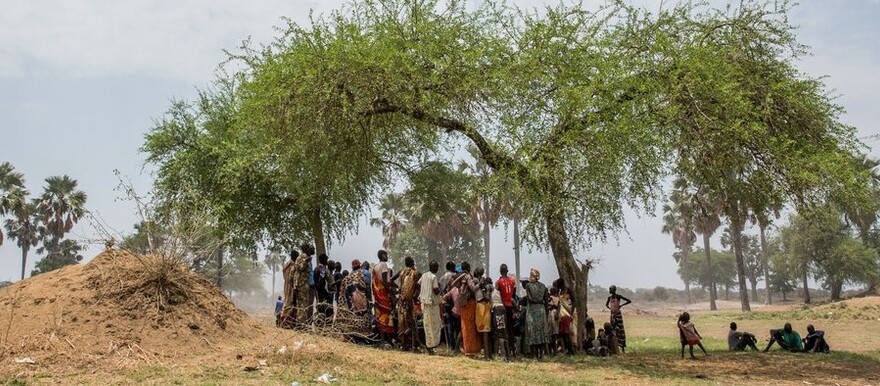A peace dialogue between the Lou Nuer and Murle youths concluded Friday in Likuangule, a village in the Pibor area, with the participants pledging to end the cycle of violence that has plagued their communities for decades.
Organized by Jonglei State and Greater Pibor Administrative Area (GPAA) governments, the peace dialogue concluded with resolutions on key issues, urging support from development partners. The initiative, starting on January 30, targeted root causes like cattle raiding and revenge killings.
The youth leaders from both Murle and Lou Nuer reached agreements on key issues, including the safe return of abducted children, a cessation of hostilities, and the establishment of a joint committee to monitor and implement the agreed-upon measures. They also appealed to development partners and the national government for support in providing essential services such as roads, schools, health facilities, and agriculture.
Speaking to Radio Tamazuj, John Abula, the deputy Chief Administrator of GPAA, emphasized that this initiative originated from the grassroots, indicating the genuine desire of the youth to break the cycle of violence and embrace peace. He expressed optimism that the dialogue’s outcomes would be tangible, paving the way for further discussions among other communities in the region.
“Youth are the ones involved in the fighting, thus contributing to insecurity in the region. It’s not the elders or older individuals who engage in raiding or revenge killings; rather, it’s the younger population actively participating in activities like cattle raiding, child abduction, and revenge killings,” stated Abula.
Highlighting the ineffectiveness of previous peace conferences held in Juba, Bor, and Pibor, Abula emphasized the importance of taking peace initiatives directly to the grassroots level. He underscored that this dialogue, facilitated by local chiefs and youth leaders, aims to engage the individuals directly affected by the conflict, fostering discussions about their future.
Abula noted that the dialogue brought together representatives from various sectors, including youth, women, traditional chiefs, local authorities, and state-level officials, from both sides of the conflict.
For her part, Elizabeth Nyadak John, the Minister of Information for Jonglei, hailed the dialogue as a significant step forward in implementing the resolutions of the Pieri peace conference, signed by Greater Jonglei region leaders in March 2023. She emphasized that the dialogue showcased the youth’s dedication to ending violence and fostering peaceful coexistence.
“It’s crucial and thrilling to witness the unity among our youth, especially considering their historical role in disrupting peace in South Sudan. While the entire nation strives for peace, the ongoing conflicts between Greater Pibor and Jonglei persist over trivial matters. It’s imperative for them to shift their focus towards development. I am genuinely pleased and supportive of their progress. My hope is for them to continue moving forward together,” Nyadak expressed.
She emphasized that the dialogue served as a platform to address the developmental requirements of the region, including education, health, roads, and agriculture. She urged the youth of Lou Nuer and Murle to adhere to the agreements reached and to actively promote the message of peace within their communities.
In addition, Nyadak appealed to both the national government and the international community to increase their support for the ongoing peace process and the overall development of the region.
The peace dialogue received backing from the governments of Jonglei and GPAA, as well as the UN Mission in South Sudan (UNMISS) and the local non-profit organization Peace Canal.




